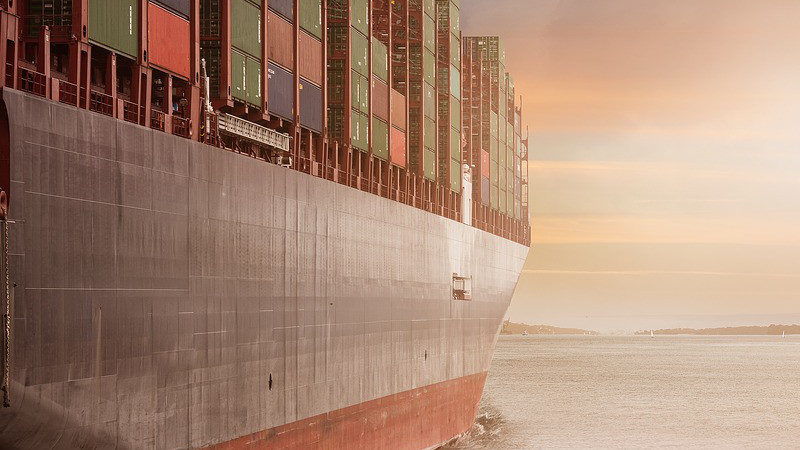
When militia attacks disrupted shipping lanes in the Red Sea, few could have predicted the ripple effects reaching the clouds over the South Atlantic. However, for Florida State University atmospheric scientist Michael Diamond, this unexpected shift in global shipping routes provided a rare opportunity to explore a pressing climate question: How do cleaner fuels impact cloud formation?
In a study published in Atmospheric Chemistry and Physics, Diamond and graduate student Lilli Boss from FSU’s Department of Earth, Ocean, and Atmospheric Science demonstrated that new fuel regulations, which reduced sulfur content by approximately 80 percent, also decreased cloud droplet formation by about 67 percent compared to previous, more polluting fuels.
“The unexpected rerouting of global shipping gave us a unique opportunity to quantify aerosol-cloud interactions, reducing the largest source of uncertainty in global climate projections,” said Diamond. “When your ‘laboratory’ is the atmosphere, it’s not every day you can run experiments like this one. It was an invaluable opportunity to get a more accurate picture of what’s happening on Earth.”
Understanding Aerosol-Cloud Interactions
The findings from this study could significantly refine global climate models, providing policymakers and scientists with more accurate climate predictions and insights into how environmental policies can protect human health. In January 2020, the International Maritime Organization (IMO) mandated a substantial reduction in sulfur content in marine fuels to curb air pollution. Aerosols from ship emissions, particularly sulfate, influence cloud formation and brightness, affecting Earth’s energy balance.
These aerosol-cloud interactions cause clouds to form with smaller, more numerous droplets, making them brighter and more reflective of sunlight. This creates a cooling effect, which has historically masked about one-third of the warming caused by greenhouse gases. However, the effects of air pollution are marked by significant uncertainty and variability. Unlike long-lived greenhouse gases such as carbon dioxide, aerosols remain in the atmosphere only for days or weeks, making aerosol-cloud interactions the largest source of uncertainty in global climate projections.
Impact of IMO 2020 and Recent Developments
Diamond’s previous research indicated that clouds in major shipping corridors were forming with larger and less numerous droplets after the implementation of IMO 2020 regulations. Currently, scientists are debating the role of the resulting increase in absorbed sunlight over the ocean in the 2023 and 2024 marine heatwaves in the Atlantic Ocean. There is also disagreement on how much cloudiness declined post-IMO 2020, with estimates ranging from a modest 10% change to a significant 80% decrease.
Beginning in November 2023, attacks in the Bab al-Mandab Strait led to a sharp decline in Red Sea traffic and a surge in shipping around the Cape of Good Hope. Consequently, the South Atlantic region, known for its persistent, low-lying clouds, experienced a sudden increase in ship volume. This rerouting, driven by conflict rather than weather or policy, allowed researchers to observe changes in cloud formation directly linked to ship emissions, offering a valuable natural test case.
Satellite Data and Future Implications
Satellite data revealed a noticeable increase in nitrogen dioxide (NO2) over the southeastern Atlantic Ocean. NO2, a gas emitted by ship engines that was unaffected by the 2020 IMO fuel regulations, served as a reliable indicator of increased ship activity. This confirmed a surge in traffic through the region, enabling scientists to directly compare pre- and post-regulation conditions under heavy ship traffic.
The implications of these findings are profound. By providing a clearer understanding of aerosol-cloud interactions, this research could lead to more precise climate models and inform future environmental policies. As global shipping routes continue to evolve due to geopolitical and environmental factors, ongoing research will be crucial in understanding the broader impacts on our planet’s climate system.
Looking ahead, scientists and policymakers will need to consider these findings as they develop strategies to mitigate climate change and protect human health. The study underscores the importance of international cooperation and regulation in addressing the complex challenges posed by global shipping and its environmental impacts.





